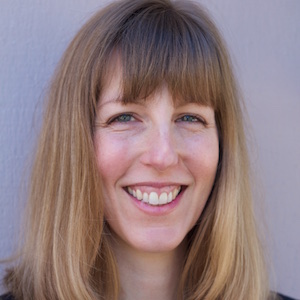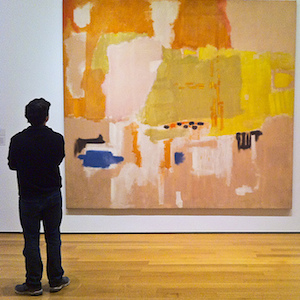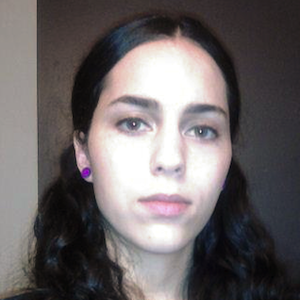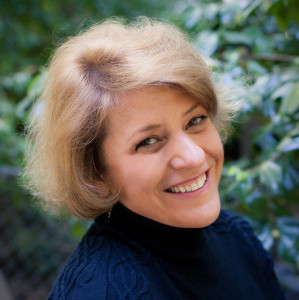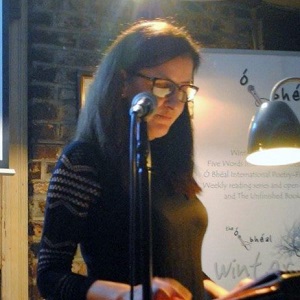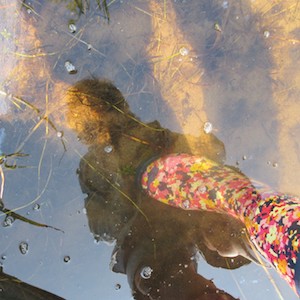The Story Behind “The Baths” by Erin Redfern
Today’s post is written by Erin Redfern. We published her poem “The Baths” in our Spring 2015 issue.
Do other poets feel drifty at times? When both reading and writing, I like a poem that anchors me to an identifiable place. “The Baths” is a tether to a sulphur hot tub at the very edge of the Big Sur coastline. On that foggy winter morning, the sea below was steel-gray, its surface unbroken despite the rise and fall of its enormous breath. I suspected the image mattered, and Emerson tells me that this intuition is all that’s needed to begin the poem: “We must trust the perfection of the creation so far, as to believe that whatever curiosity the order of things has awakened in our minds, the order of things can satisfy . . . Let us interrogate the great apparition, that shines so peacefully around us.”
Did I serenely interrogate the great apparition? No. I was recovering from emotional trauma, and I went on a rant, using the lines of the first draft of “The Baths” to strike out at bad people, bad choices, and the way my life had showed up (badly, I thought). When a kind reader suggested that anger was getting in the way of the poem, I balked. I also couldn’t finish the poem as long as I was using it as a vehicle for what I felt I needed to say.
Instead, I needed to learn to listen to what “The Baths” was telling me. Not much about anger and a lot, it turns out, about fear, in particular those twinned fears of exposure and of being invisible. It would take me several more years (yep, years) to understand that the womb-like appearance of the ocean that morning—the life in its depths hidden beneath the surface, but also revealed by its heaving movement—demonstrated the irresolvable tension between these two fears. D. W. Winnicott captures a similar idea in his well-known maxim: “It is a joy to be hidden, and disaster not to be found.” We are immersed in an ocean of language, and language paradoxically can camouflage or delineate the mystery of our being alive in the world. Poems are a way through this paradox, a way of finding what is hidden from and within us; we “lose ourselves” in writing poems, and as we compose them, we are composed; we are found.
Now that I understand what so many poets already know—that poems are our guides, not our servants—I am still tempted to set up my notebook and laptop and start willing a poem into being. Unless I’m vigilant, writing quickly becomes an endeavor, a word meaning to exert oneself, related to the idea of doing one’s duty. In endeavoring to write the poem, I turn it into a chore instead of an adventure. Keats warns me, “If poetry comes not as naturally as the leaves to a tree, it had better not come at all.” I don’t take this to mean that writing poems should be effortless, that poetry is all inspiration and no craft; trees, after all, have their own meticulous design. But Keats’ dictum reminds me that writing poems is not all effort, either. As much as I persist in the attempt, I’ve never been able to decide to write a poem, or to salvage a broken poem by trying harder.
What to do when one needs to try less? Made restless and irritable when I listen for the poem but fail to hear it, I ask the universe for help. I do yoga, hoping that getting physically grounded will reconnect me to words, as well. Like writing, maybe like any spiritual path, yoga requires a combination of effort and surrender. The lesson is a hard one. I’m a perennial beginner, but poems are master teachers. And the payoff is as big as the Pacific: the joy of discovery, of knowing deeply (what artist Jennifer Allen calls “bone knowing”) and, of course, of participating in creation itself, what Emerson describes as “adorn[ing] nature with a new thing.”
About Erin Redfern
A San Jose, California native, Erin Redfern serves on the board of the Poetry Center San Jose and as associate editor for the 2015 issue of its print publication, Caesura. Her poems have appeared or are forthcoming in Zyzzyva, Scapegoat Review, Mud Season Review and Foliate Oak Literary Magazine.

